
The Enchanting Rio Paraguay
The Rio Paraguay is a majestic river that flows through the heart of Paraguay. This river is a key feature of the country's landscape and offers a unique experience for travelers who love nature and adventure. The river stretches for over 2,600 kilometers, connecting various regions and offering breathtaking views of the surrounding flora and fauna. Tourists visiting the Rio Paraguay can enjoy a diverse range of activities. From boat tours that take you through the lush greenery and scenic vistas to fishing expeditions that let you experience the local way of life, there is something for everyone. Wildlife enthusiasts will be delighted by the chance to spot exotic birds, capybaras, and even jaguars along the riverbanks. The area around Rio Paraguay is also rich in cultural heritage. You can visit small riverside villages to learn about the traditions and customs of the indigenous communities. The warm hospitality of the locals adds to the charm of this beautiful destination, making your visit truly memorable.
Local tips in Rio Paraguay
- Best Time to Visit: The ideal time to visit is during the dry season from May to September when the weather is pleasant and wildlife is more visible.
- Local Guides: Hiring a local guide can enhance your experience by providing insights into the area's history, wildlife, and culture.
- Safety Precautions: Always wear a life jacket during boat tours and follow safety instructions given by your guide.
- Cash is King: Carry enough cash as ATMs and card payment facilities might not be available in remote areas.
- Respect Local Customs: Be respectful of local traditions and practices, especially when visiting indigenous communities.
The Enchanting Rio Paraguay
The Rio Paraguay is a majestic river that flows through the heart of Paraguay. This river is a key feature of the country's landscape and offers a unique experience for travelers who love nature and adventure. The river stretches for over 2,600 kilometers, connecting various regions and offering breathtaking views of the surrounding flora and fauna. Tourists visiting the Rio Paraguay can enjoy a diverse range of activities. From boat tours that take you through the lush greenery and scenic vistas to fishing expeditions that let you experience the local way of life, there is something for everyone. Wildlife enthusiasts will be delighted by the chance to spot exotic birds, capybaras, and even jaguars along the riverbanks. The area around Rio Paraguay is also rich in cultural heritage. You can visit small riverside villages to learn about the traditions and customs of the indigenous communities. The warm hospitality of the locals adds to the charm of this beautiful destination, making your visit truly memorable.
When is the best time to go to Rio Paraguay?
Iconic landmarks you can’t miss
Plaza Uruguaya
Experience the beauty and cultural richness of Plaza Uruguaya, a tranquil park in the heart of Asunción, Paraguay, perfect for relaxation and exploration.
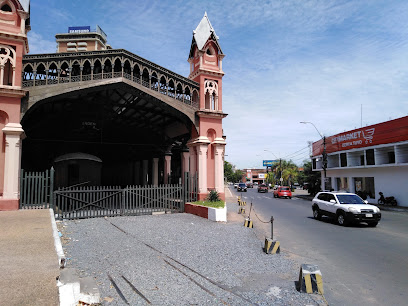
Plaza de la Democracia
Discover the charm of Plaza de la Democracia, a vibrant park in Asunción offering a blend of nature, culture, and history for all visitors.
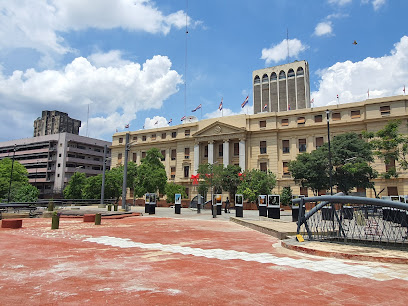
Carlos Antonio Lopez Park
Explore the beauty of Carlos Antonio Lopez Park, an urban oasis in Asunción, offering lush greenery and stunning views of the Paraguay River.
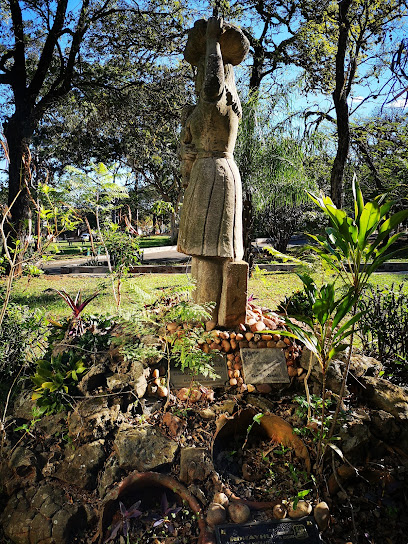
National Pantheon of Heroes
Discover the National Pantheon of Heroes in Asunción, an architectural gem that honors Paraguay's greatest heroes and showcases its rich cultural heritage.
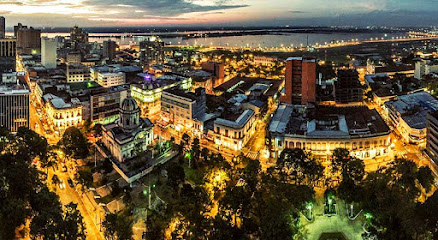
Independence House Museum
Explore Paraguay's fight for freedom at the Independence House Museum, a pivotal historical landmark showcasing rich cultural heritage and artifacts.
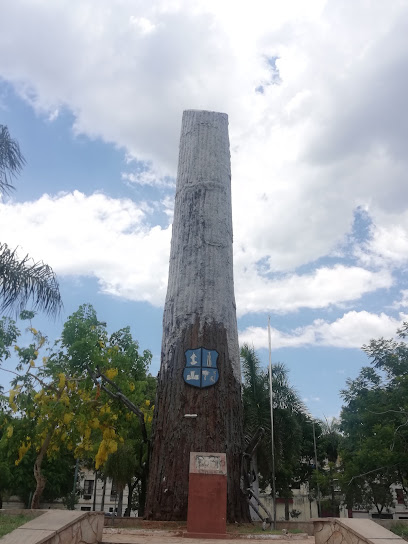
Castillo Carlota Palmerola
Explore the architectural beauty and rich history of Castillo Carlota Palmerola, a captivating tourist attraction in Areguá, Paraguay.
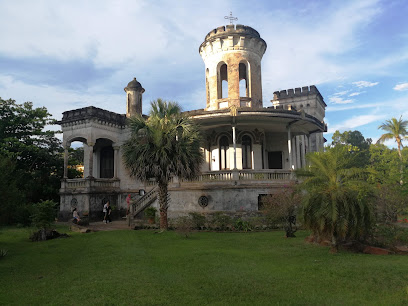
Castillo Echauri
Discover the enchanting Castillo Echauri in Vista Alegre, a stunning architectural marvel that reflects Paraguay's rich history and culture.
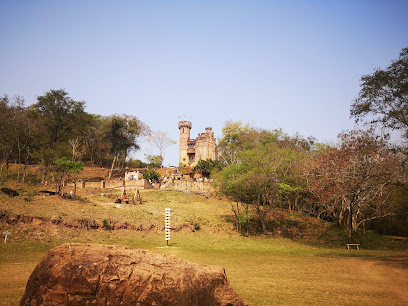
Paraguay River
Experience the tranquil beauty and biodiversity of the Paraguay River, an ideal destination for adventure and relaxation in South America.

Cerro Kõi
Explore the breathtaking beauty of Cerro Kõi, a tranquil park in Areguá, Paraguay, where stunning views and nature await your discovery.
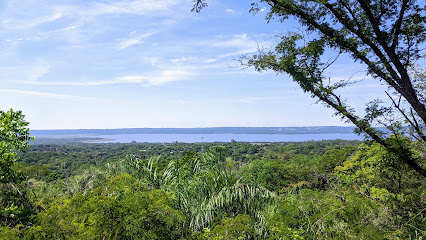
Museo del Barro
Discover the artistic heart of Paraguay at Museo del Barro, where tradition meets contemporary creativity in an inspiring cultural experience.
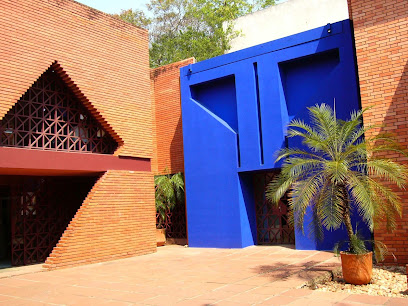
Palacio de López
Explore the stunning Palacio de López, a historical government building in Asunción, showcasing neo-classical architecture and rich Paraguayan heritage.

Cerro Lambaré
Experience the breathtaking views and natural beauty of Cerro Lambaré, a must-visit mountain peak in Asunción, Paraguay.
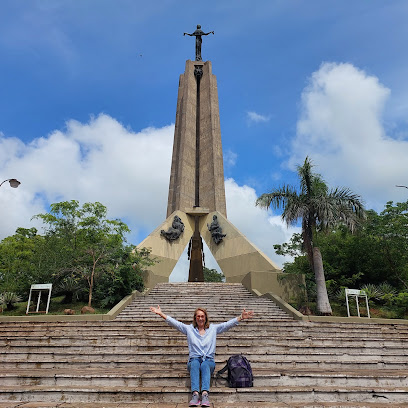
Caverna Kambá Hópo
Explore the enchanting Caverna Kambá Hópo in Puerto Valle-Mi, Paraguay—a breathtaking cave system filled with stunning formations and rich biodiversity.
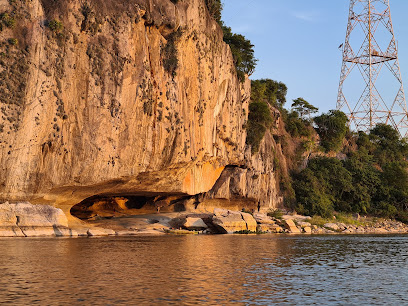
Cerro Dos De Oro
Explore the lush landscapes and vibrant wildlife of Cerro Dos De Oro, a stunning nature preserve in Capiibary, Paraguay, perfect for outdoor enthusiasts.
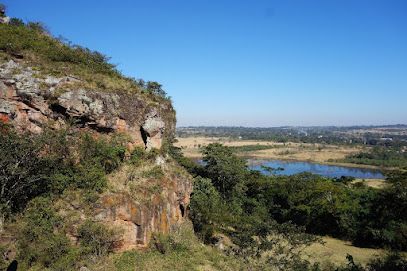
Salado River
Explore the breathtaking Salado River in Limpio, Paraguay, where nature, adventure, and tranquility converge for an unforgettable experience.
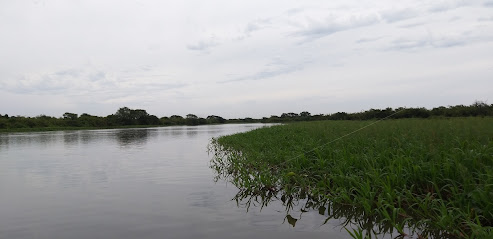
Unmissable attractions to see
Playa De Aregua
Experience the serene beauty and cultural vibrancy of Playa De Aregua, a must-visit park in Areguá, Paraguay, perfect for relaxation and exploration.
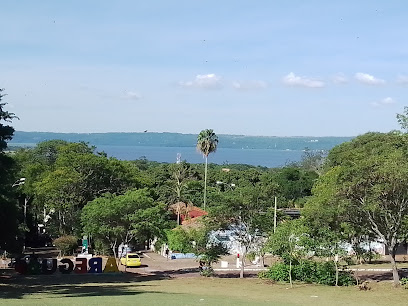
Loma San Jerónimo
Discover the stunning views and vibrant culture of Loma San Jerónimo, the hilltop gem of Asunción, Paraguay, for an unforgettable travel experience.
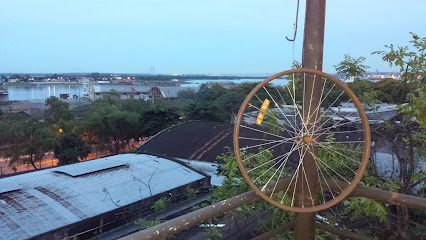
Museo del Barro
Discover Paraguay's artistic heritage at Museo del Barro, a vibrant art museum showcasing indigenous and contemporary works in Asunción.
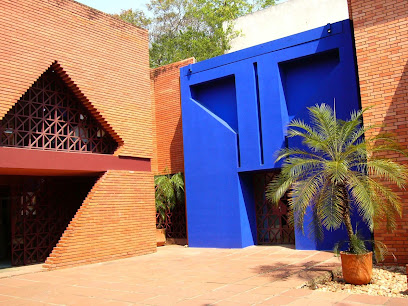
Museum of Sacred Art
Discover the rich tapestry of Paraguayan spirituality through exquisite artworks at the Museum of Sacred Art in Asunción.
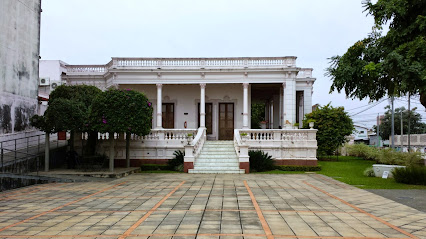
Caverna Kambá Hópo
Experience the breathtaking beauty of Caverna Kambá Hópo, a natural wonder in Paraguay featuring stunning rock formations and rich biodiversity.
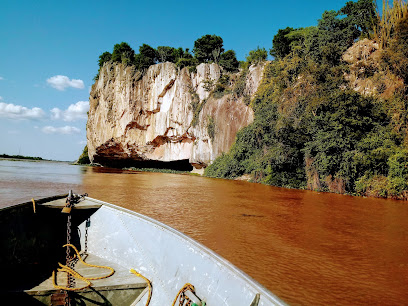
Mirador de la confluencia entre el río Paraguay y el río Paraná
Discover the stunning Mirador de la Confluencia, where the Paraguay River gracefully merges with the Paraná, offering breathtaking views and serene landscapes.
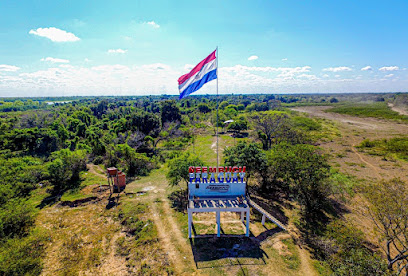
Loma Clavel
Discover Loma Clavel, a cultural gem in Asunción, where breathtaking views and vibrant local culture come together for an unforgettable experience.
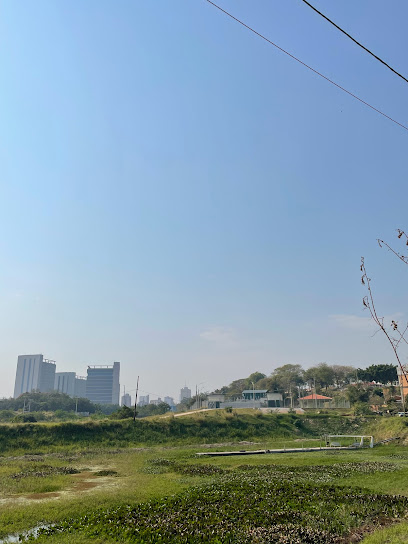
La zanja de Nico
Explore La Zanja de Nico in Ita Yvu, a vibrant tourist attraction showcasing Paraguay's rich culture and artistry for an unforgettable experience.
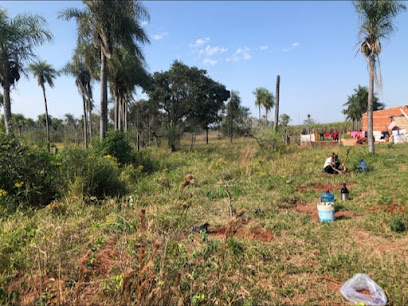
arroyo yhaguy visitar
Explore the tranquil beauty of Arroyo Yhaguy in Pinamar, Paraguay, a perfect retreat for nature lovers and adventure seekers alike.
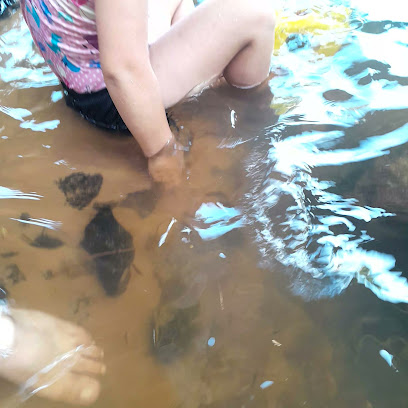
Paguay pyahu
Explore Paguay Pyahu, a hidden gem in Liberación, Paraguay, offering cultural experiences and breathtaking landscapes for every traveler.
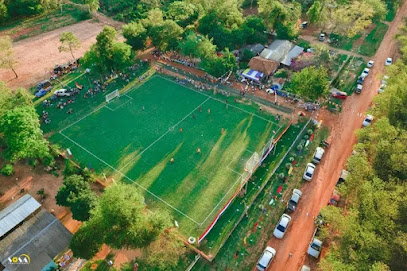
Paraíso frente al Rio
Experience the serene beauty of Paraíso frente al Rio, a captivating tourist attraction in Paranambu 2, Paraguay, perfect for relaxation and nature exploration.

Monumento al Pa’i García
Explore the Monumento al Pa’i García in Luque, Paraguay - a stunning tribute to cultural heritage and a beautiful spot for relaxation.

limite geometrico
Discover the unique Limite Geometrico in Villa Hayes, a fascinating tourist attraction that embodies the intersection of nature and national borders.

Essential places to dine
Bolsi
Experience the vibrant flavors of Paraguay at Bolsi – where family-friendly dining meets culinary excellence in Asunción.
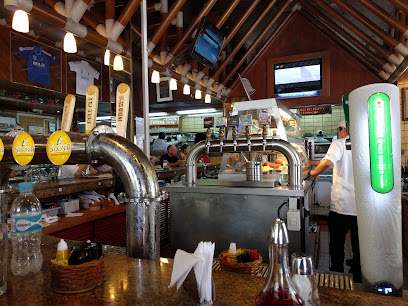
Lido Bar
Discover the rich flavors of Paraguay at Lido Bar – where authentic cuisine meets warm hospitality in Asunción.
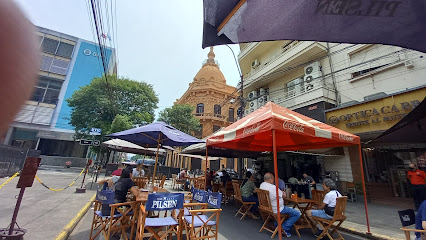
Acuarela
Experience the best Brazilian steakhouse in Asunción at Acuarela, where flavor meets tradition in every delicious bite.
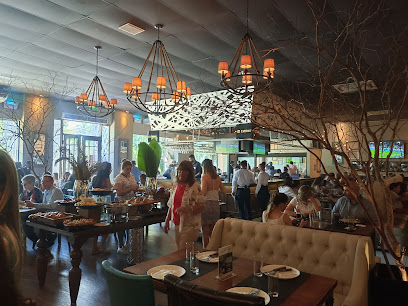
La Cabrera
Discover La Cabrera in Asunción: where premium steaks meet unparalleled hospitality for an unforgettable dining experience.
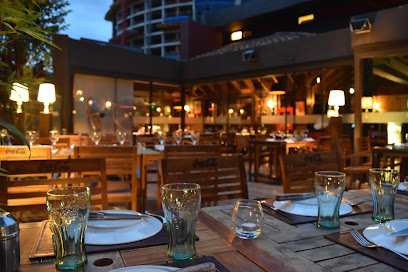
Maurice de Talleyrand
Discover culinary artistry at Maurice de Talleyrand, Asunción's premier restaurant offering exquisite flavors and an elegant dining experience.
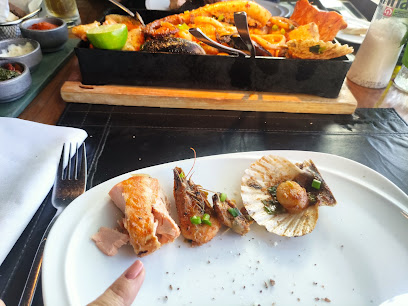
Taberna Española
Discover authentic Spanish cuisine at Taberna Española in Asunción - where tradition meets taste in every dish.
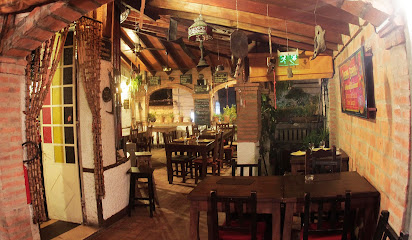
Negroni Downtown Skybar
Discover Negroni Downtown Skybar - where exquisite sushi meets vibrant cocktails against stunning views of Asunción's skyline.
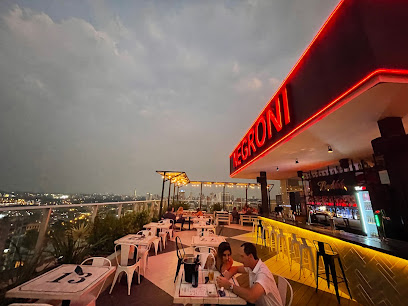
La Paraguayita
Experience authentic Paraguayan cuisine at La Paraguayita in Asunción—where tradition meets flavor in every bite.
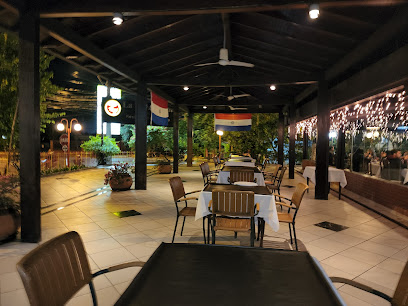
Tierra Colorada Gastro
Experience authentic Paraguayan cuisine at Tierra Colorada Gastro in Asunción - where tradition meets flavor in every dish.
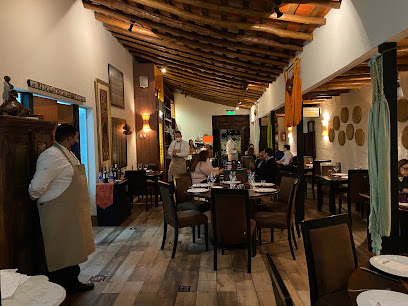
Zulu Rooftop
Elevate your dining experience at Zulu Rooftop in Asunción - where breathtaking views meet exquisite cuisine.
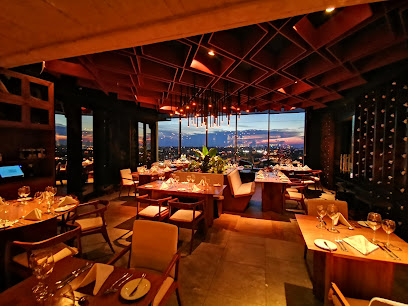
Restaurante Su
Experience authentic Korean flavors at Restaurante Su in Asunción – where culinary tradition meets modern dining.
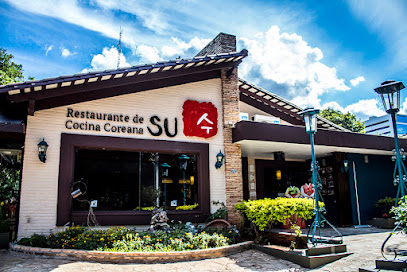
Hacienda Las Palomas
Savor authentic Mexican cuisine in Asunción at Hacienda Las Palomas - where every meal is a festive celebration.
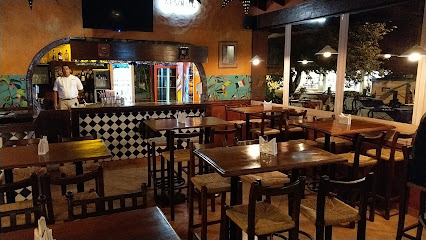
MBURICAO Restaurante
Experience exquisite French and Italian cuisine at Mburicao Restaurant in Asunción - where every meal is a celebration of flavor.
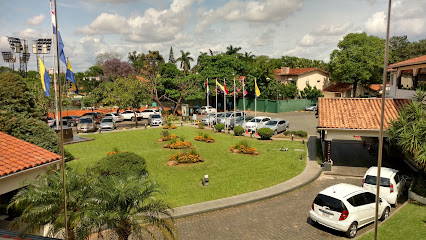
Talleyrand Shopping del Sol
Discover authentic Paraguayan cuisine at Talleyrand Shopping del Sol in Asunción - a must-visit culinary destination for every traveler.
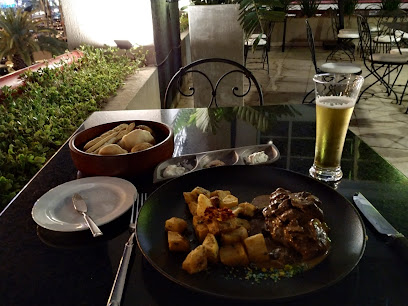
Tagatiyá Restaurante
Discover the flavors of Paraguay at Tagatiyá Restaurante - a culinary gem in Concepción offering authentic local dishes and warm hospitality.
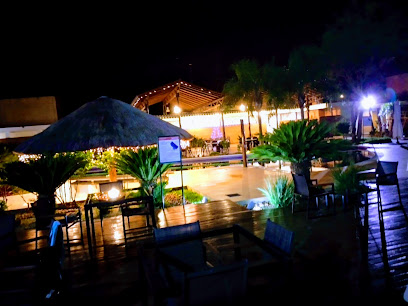
Markets, malls and hidden boutiques
Paseo La Galería
Discover a vibrant shopping experience at Paseo La Galería, where fashion, dining, and entertainment converge in the heart of Asunción.
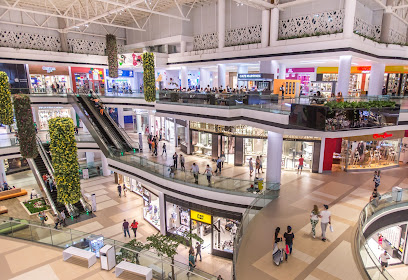
Shopping del Sol
Discover Shopping del Sol: A premier shopping mall in Asuncion, blending shopping, dining, and entertainment in a vibrant atmosphere.
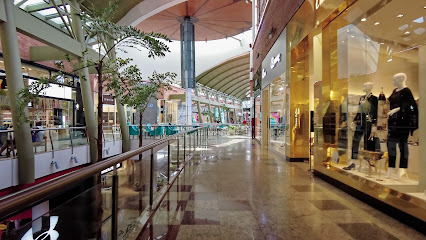
Shopping Mariscal
Discover Shopping Mariscal in Asunción: the ultimate shopping destination with diverse stores, dining options, and vibrant entertainment.
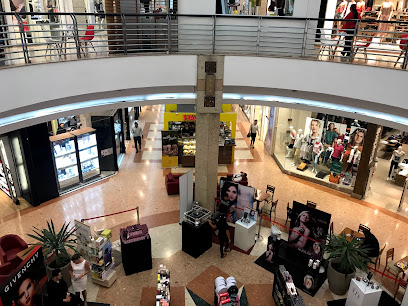
Pinedo Shopping
Explore Pinedo Shopping in San Lorenzo, Paraguay - a vibrant mall offering diverse shopping, dining, and entertainment experiences for all visitors.
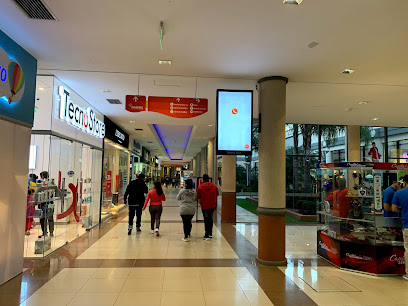
Shopping Villa Morra
Discover the vibrant Shopping Villa Morra in Asunción, a unique mall offering diverse shops, dining, and an authentic Paraguayan experience.
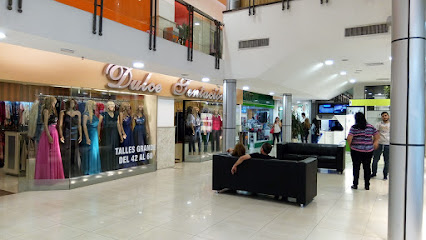
Bazzar San Martin
Explore Bazzar San Martin in Asunción for an unmatched selection of stylish and comfortable footwear for every occasion.
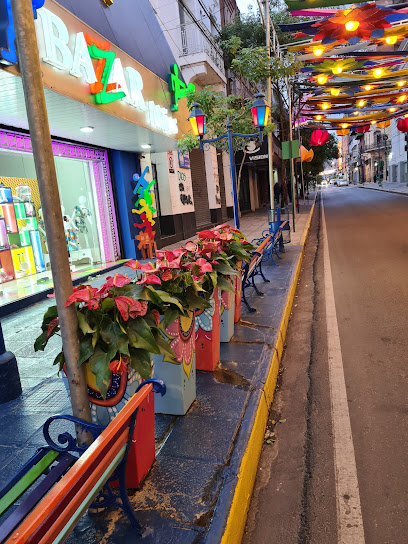
Coffee Smith
Experience the warmth and flavor of San Lorenzo at Coffee Smith, where every cup tells a story.
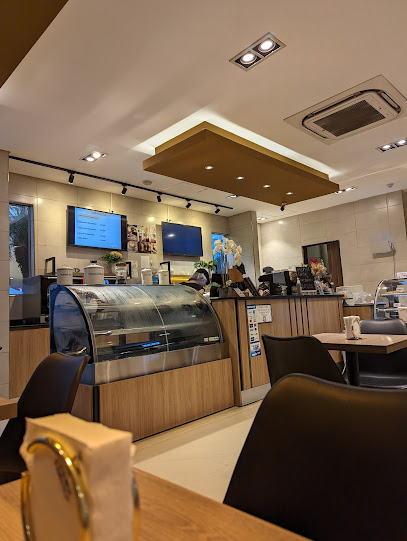
Comercial Rios
Discover the charm of Paraguayan home goods at Comercial Rios in Villa Hayes, where quality meets local craftsmanship.
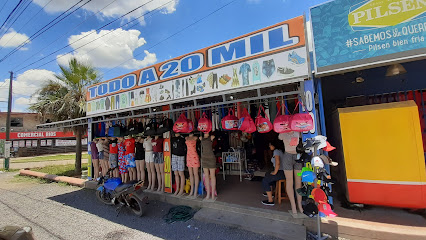
Over All Artesanías
Discover unique artisan crafts and home goods at Over All Artesanías in Asunción, where every piece tells a story of cultural heritage and craftsmanship.
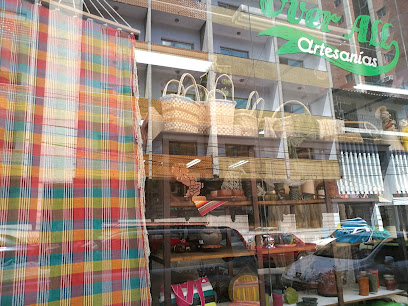
Paraguayita Mia
Explore Paraguayita Mia in Asunción for unique handicrafts and souvenirs that capture the essence of Paraguayan culture and artistry.
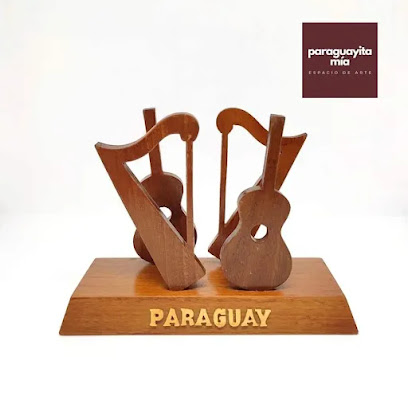
Garage Deportivo
Discover quality sporting goods at Garage Deportivo in Asunción, where active lifestyles meet exceptional service and a wide selection.

Despensa San Cayetano
Experience local flavors and unique products at Despensa San Cayetano in Villa Elisa, a charming shopping destination for every traveler.
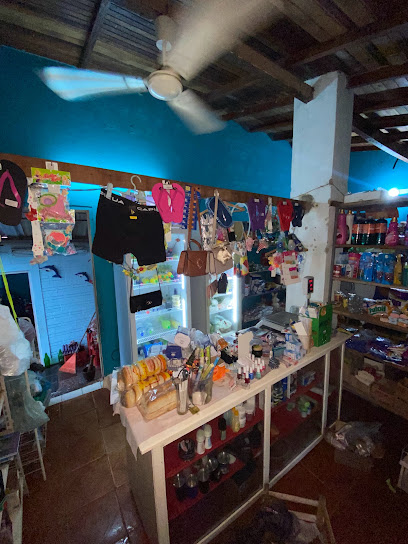
Addicted Lambaré
Explore the vibrant fashion scene at Addicted Lambaré, a must-visit clothing store in Paraguay for trendy styles and unique finds.
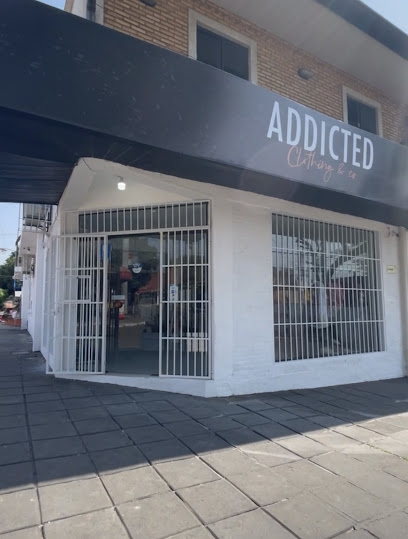
Letty Sanz Perfumes
Experience the essence of Paraguay at Letty Sanz Perfumes, offering a unique blend of fragrances and fashion in the heart of Asunción.

KAGUYA velas
Explore KAGUYA Velas in San Antonio for exquisite handcrafted candles that bring warmth and ambiance to any setting.
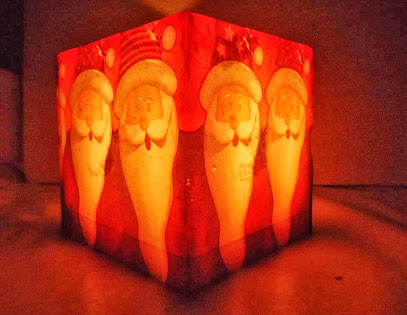
Essential bars & hidden hideouts
Lido Bar
Discover the vibrant flavors of Paraguay at Lido Bar, Asunción's favorite restaurant, offering a delightful mix of local and international cuisines.
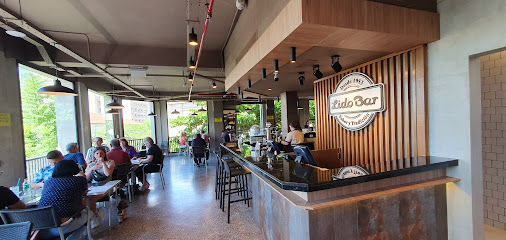
Britannia Pub
Discover the lively ambiance and diverse menu at Britannia Pub in Asunción, where great food meets vibrant nightlife.
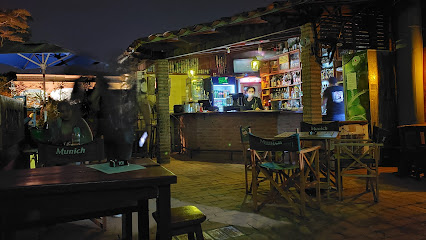
Negroni Downtown Skybar
Discover a culinary gem in Asunción at Negroni Downtown Skybar, where sushi, Italian flavors, and skyline views combine for an unforgettable dining experience.
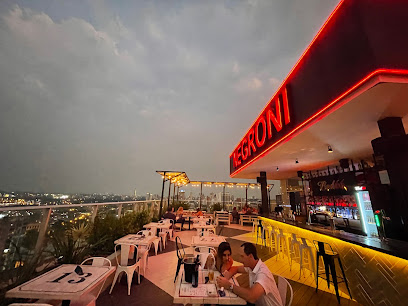
Palo Santo Brewing Company
Discover the vibrant craft beer scene at Palo Santo Brewing Company in Asunción - a brewpub offering artisanal flavors and a lively atmosphere.
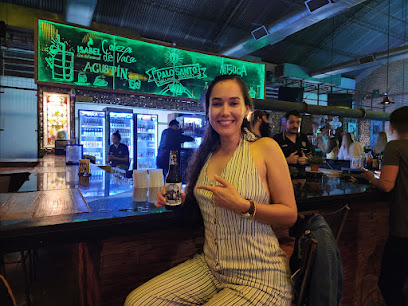
Negroni Rooftop at Dazzler
Discover the exquisite fusion of sushi and cocktails at Negroni Rooftop, offering breathtaking views and a vibrant ambiance in Asunción.
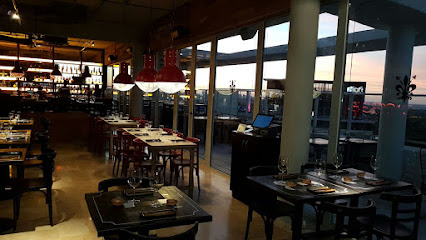
Kilkenny
Experience the vibrant nightlife of Asunción at Kilkenny, where unique cocktails and a lively atmosphere await every visitor.
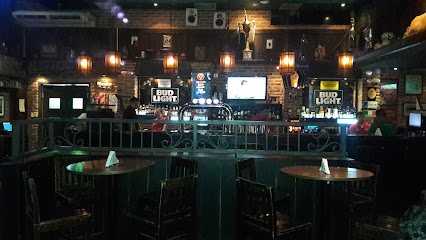
Rock 66
Experience the vibrant nightlife at Rock 66, Asunción's premier bar with live music, delicious drinks, and a welcoming atmosphere.
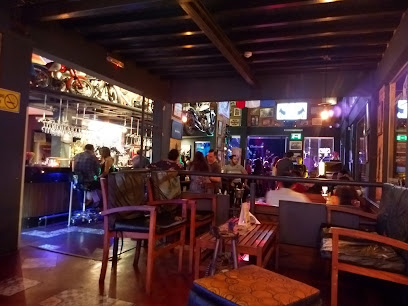
Ko'ape Rooftop
Experience breathtaking city views and vibrant nightlife at Ko'ape Rooftop, the premier bar destination in Asunción, Paraguay.
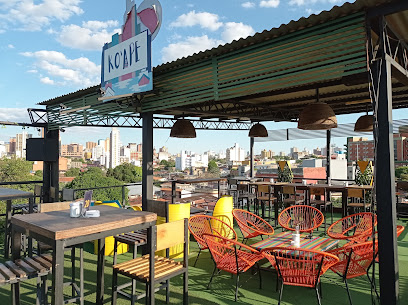
O'Leary club
Discover the lively atmosphere of O'Leary Club in Asunción, where great drinks and live music create an unforgettable nightlife experience.
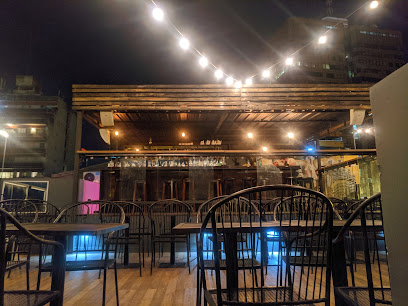
Absoluto Rock Bar
Discover the electrifying vibe of Absoluto Rock Bar in Asunción - a top destination for live music and nightlife.
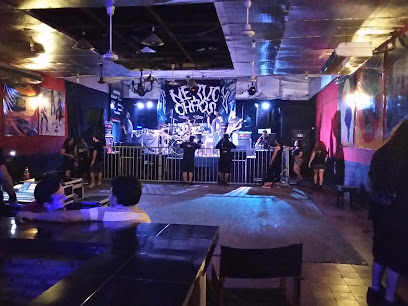
Morgan Warehouse, Nightclub
Experience the vibrant nightlife of Asunción at Morgan Warehouse, where music, dance, and unforgettable memories await in a stunning venue.
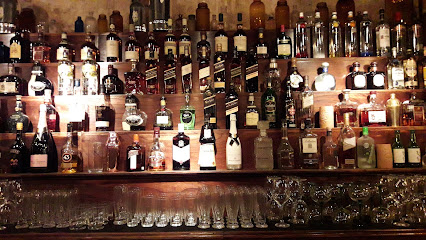
Cantina LoSiento
Experience the vibrant flavors of Paraguay at Cantina LoSiento, where family-friendly dining meets the rhythm of live jazz in Asunción.
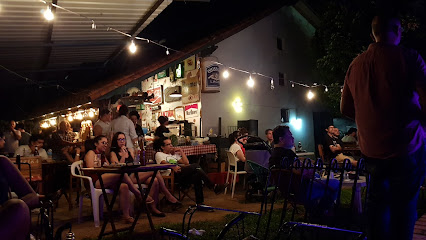
Terraza D'Lirio
Experience vibrant nightlife at Terraza D'Lirio, a bar in Asunción offering stunning views and a lively atmosphere for all visitors.
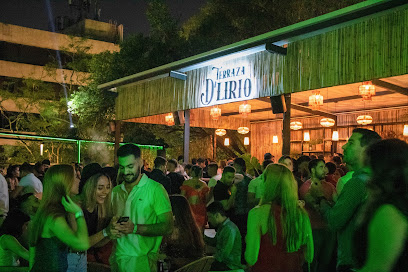
Costa Mansa
Discover Costa Mansa in Asunción for vibrant cocktails, scenic views, and a lively atmosphere that embodies the spirit of Paraguay.
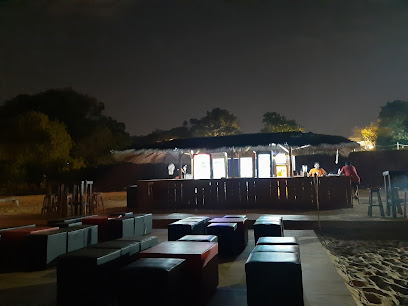
Paraguayito Lounge Bar
Discover Paraguayito Lounge Bar: A vibrant hub in Luque for cocktails, music, and authentic Paraguayan nightlife.

Local Phrases about Rio Paraguay
-
- HelloHola
[oh-lah] - GoodbyeAdiós
[ah-dyohs] - YesSí
[see] - NoNo
[noh] - Please/You're welcomePor favor/De nada
[pohr fah-bohr/deh nah-dah] - Thank youGracias
[grah-syahs] - Excuse me/SorryDisculpe/Perdón
[dees-kool-peh/pehr-dohn] - How are you?¿Cómo estás?
[koh-moh ehs-tahs] - Fine. And you?Bien. ¿Y tú?
[byen. ee too] - Do you speak English?¿Hablas inglés?
[ah-blahs een-glehs] - I don't understandNo entiendo
[noh ehn-tyehn-doh]
- HelloHola
-
- I'd like to see the menu, pleaseMe gustaría ver el menú, por favor
[meh goos-tah-ree-ah behr ehl meh-noo, por fah-bohr] - I don't eat meatNo como carne
[noh koh-moh kahr-neh] - Cheers!Salud!
[sah-lood] - I would like to pay, pleaseMe gustaría pagar, por favor
[meh goos-tah-ree-ah pah-gahr, por fah-bohr]
- I'd like to see the menu, pleaseMe gustaría ver el menú, por favor
-
- Help!¡Ayuda!
[ah-yoo-dah] - Go away!¡Vete!
[veh-teh] - Call the Police!¡Llama a la policía!
[yah-mah ah lah poh-lee-see-ah] - Call a doctor!¡Llama a un médico!
[yah-mah ah oon meh-dee-koh] - I'm lostEstoy perdido/a
[ehs-toy pehr-dee-doh/dah] - I'm illEstoy enfermo/a
[ehs-toy ehn-fehr-moh/ah]
- Help!¡Ayuda!
-
- I'd like to buy...Me gustaría comprar...
[meh goos-tah-ree-ah kohm-prahr...] - I'm just lookingSolo estoy mirando
[soh-loh ehs-toy mee-rahn-doh] - How much is it?¿Cuánto cuesta?
[kwan-toh kwehs-tah] - That's too expensiveEso es demasiado caro
[eh-soh ehs deh-mah-see-ah-doh kah-roh] - Can you lower the price?¿Puedes bajar el precio?
[pweh-dehs bah-har ehl preh-syoh]
- I'd like to buy...Me gustaría comprar...
-
- What time is it?¿Qué hora es?
[keh oh-rah ehs] - It's one o'clockEs la una en punto
[ehs lah oo-nah ehn poon-toh] - Half past (10)Y media (10)
[ee meh-dyah (diez)] - MorningMañana
[mah-nyah-nah] - AfternoonTarde
[tahr-deh] - EveningNoche
[noh-cheh] - YesterdayAyer
[ah-yehr] - TodayHoy
[oy] - TomorrowMañana
[mah-nyah-nah] - 1Uno
[oo-noh] - 2Dos
[dohs] - 3Tres
[trehs] - 4Cuatro
[kooah-troh] - 5Cinco
[seen-koh] - 6Seis
[says] - 7Siete
[syeh-teh] - 8Ocho
[oh-choh] - 9Nueve
[nweh-veh] - 10Diez
[dyehs]
- What time is it?¿Qué hora es?
-
- Where's a/the...?¿Dónde está un/el...?
[dohn-deh ehs-tah oon/ehl] - What's the address?¿Cuál es la dirección?
[kwal ehs lah dee-rehk-syohn] - Can you show me (on the map)?¿Puedes mostrarme (en el mapa)?
[pweh-dehs mohs-trar-meh (ehn ehl mah-pah)] - When's the next (bus)?¿Cuándo es el próximo (autobús)?
[kwan-doh ehs ehl proh-ksy-moh (ow-toh-boos)] - A ticket (to ....)Un boleto (a ....)
[oon boh-leh-toh (ah)]
- Where's a/the...?¿Dónde está un/el...?
History of Rio Paraguay
-
Before European contact, the region around Rio Paraguay was inhabited by various indigenous groups, including the Guarani people. These communities thrived along the river, utilizing its resources for fishing, agriculture, and transportation. The river was central to their daily lives and spiritual practices.
-
In the early 16th century, Spanish explorers arrived in the region, marking the beginning of European influence. The explorer Alejo García is one of the first known Europeans to have navigated parts of Rio Paraguay. Subsequently, the Spanish established settlements, and the river became a crucial artery for transporting goods and people inland.
-
During the 17th and 18th centuries, Jesuit missionaries established several missions along Rio Paraguay. These missions aimed to convert the indigenous populations to Christianity and integrate them into colonial society. The Jesuits introduced new agricultural techniques and crafts, profoundly impacting the local culture and economy.
-
The Paraguayan War (1864-1870), also known as the War of the Triple Alliance, had a significant impact on the Rio Paraguay region. The river was a strategic route for military campaigns and supply lines. The war devastated Paraguay's population and infrastructure, and the river witnessed numerous battles and troop movements.
-
In the 20th century, Rio Paraguay became increasingly vital for Paraguay's economy. The river supports agriculture, fishing, and trade, with Asunción and other river ports playing key roles in the nation's commerce. Hydroelectric projects and infrastructure improvements have further enhanced its economic importance.
-
Rio Paraguay remains a cultural symbol in Paraguay, celebrated in folklore, music, and literature. The river is featured in traditional songs and stories, reflecting its enduring presence in the national identity. Festivals and events along its banks continue to honor its historical and cultural significance.
Rio Paraguay Essentials
-
Rio Paraguay can be accessed via the Silvio Pettirossi International Airport in Asunción, the capital city of Paraguay. From Asunción, you can take a domestic flight to the nearest airport in Concepción or travel by bus or car. The bus journey from Asunción to Concepción takes approximately 6-7 hours. Alternatively, you can drive, which allows you to explore the scenic routes along the way.
-
Transportation options along Rio Paraguay include buses, taxis, and boats. Buses connect major towns and are an affordable way to travel. Taxis are available in urban areas but always agree on the fare beforehand. Boat travel is popular for exploring remote areas along the river, and local boat services can be arranged. Car rentals are also available for those who prefer to explore at their own pace.
-
The official currency in Paraguay is the Paraguayan Guarani (PYG). Credit cards are accepted in most hotels, restaurants, and shops in urban areas, but it is advisable to carry cash, especially in smaller towns and rural areas. ATMs are available in major towns, but ensure you have enough cash for your journey as services can be limited in remote regions.
-
While Rio Paraguay is generally safe for tourists, it is essential to take standard precautions. Avoid walking alone at night, especially in unfamiliar areas. Stay vigilant in crowded places and keep an eye on your belongings. Some areas in larger cities like Asunción have higher crime rates targeting tourists, such as the neighborhoods of Chacarita and Ricardo Brugada. Exercise caution and avoid these areas, especially after dark.
-
In case of emergency, dial 911 for immediate assistance. Medical facilities are available in major towns along Rio Paraguay, with hospitals in Asunción and Concepción offering comprehensive services. It is recommended to have travel insurance covering medical emergencies. For minor health issues, pharmacies are available in most towns where you can purchase over-the-counter medications.
-
Fashion: Do dress modestly, especially when visiting religious sites or rural areas. Avoid wearing flashy jewelry. Religion: Do respect local customs and traditions. When visiting churches, dress conservatively and behave respectfully. Public Transport: Do be courteous and give up your seat to elderly passengers. Don't eat or drink on public transport. Greetings: Do greet people with a handshake. A warm smile and polite greeting in Spanish, such as 'Hola' or 'Buenos días,' is appreciated. Eating & Drinking: Do try local dishes and accept food offerings graciously. Don't refuse hospitality, as it can be considered impolite.
-
To experience Rio Paraguay like a local, visit the bustling markets where you can buy fresh produce and traditional Paraguayan goods. Engage with locals, who are often friendly and willing to share stories about their culture and history. Don't miss the opportunity to explore the river by boat, offering a unique perspective of the region's natural beauty. Try traditional dishes like Sopa Paraguaya and Chipa, and enjoy traditional music and dance performances whenever possible.
Trending Landmarks in Rio Paraguay
Nearby Cities to Rio Paraguay
-
Things To Do in Brasília
-
Things To Do in Sucre
-
Things To Do in Cochabamba
-
Things To Do in Potosi
-
Things To Do in Tarija
-
Things To Do in Asuncion
-
Things To Do in Aregua
-
Things To Do in San Bernardino
-
Things To Do in Ypacarai
-
Things To Do in Hernandarias
-
Things To Do in Foz do Iguaçu
-
Things To Do in Puerto Iguazú
-
Things To Do in Villarrica
-
Things To Do in La Paz
-
Things To Do in Uyuni











